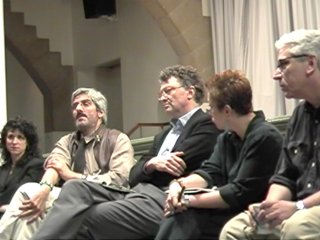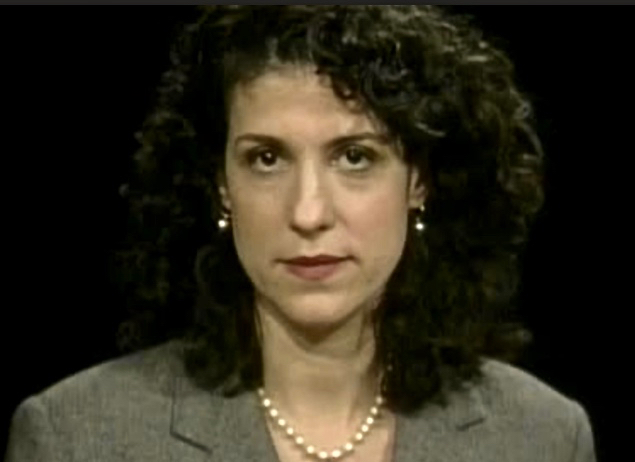
“Is there something that would make the imagination responsible and answerable to the reality principles of being human all around us? That’s the question.”
– George Steiner
In the accumulating wake of Bosnia, Rwanda, the mutilation of Sierra Leoneons, among other such barbarisms occurring throughout the world, this town meeting brought together five world-renowned journalists who have covered war crimes and acts of genocide over the second half of the 20th century. Never Again was convened to address the bewilderment many of us feel in the face of such atrocities. The all-day meeting was structured by 4 questions tackled both by the speakers and the audience, who together engaged a sustained dialogue addressing the complexity of these global emergencies, and the circumstances of how, if or when to respond.
Featuring
Philip GourevitchWilliam Shawcross
Laura Silber
Gilles Peress
David Reiff
Creative Producer:
Melanie Joseph2000 : The Cooper Union, New York City
Questions
On December 9, 1948 The United Nations adopted resolution 260(III)A for the prevention and punishment of the crime of genocide. In response to the Holocaust, this resolution gave rise to the promise of “never again.” Yet mass killings continue to proliferate around the world, each situation more complex than the last, leaving most of us bewildered as to how to respond.
What lessons, if any, can be derived from the world’s inaction in Rwanda and Bosnia?
How can we meet the promise of never again made by the Geneva Convention in 1948?
How can or should the international community react when a government massacres its own people?
When do human rights supersede those of a nation’s sovereignty?
Speakers


Philip Gourevitch has been a staff writer at The New Yorker since April, 1997. For “After the Genocide,” one of a series of pieces on the Rwandan tragedy, he won a citation from the Overseas Press Club. He was also a finalist for the National Magazine Award in both 1996 and 1997. Mr. Gourevitch’s first book,We Wish To Inform You That Tomorrow We Will Be Killed With Our Families: Stories From Rwanda, was published in September 1998. It won the National Book Critics Circle Award, the Los Angeles Times Book Prize, the George Polk Award for non-fiction, the Overseas Press Club Book Award, the Helen Bernstein Book Award of the New York Public Library, and the PEN/Martha Albrand Award for first non-fiction. Mr. Gourevitch is currently a Contributing Editor at The Forward and a Senior Fellow at the World Policy Institute. Gourevitch has been published in Harper’s, Granta, The New York Review of Books, Southwest Review, Story, and Zoetrope. He lives in New York City.

















